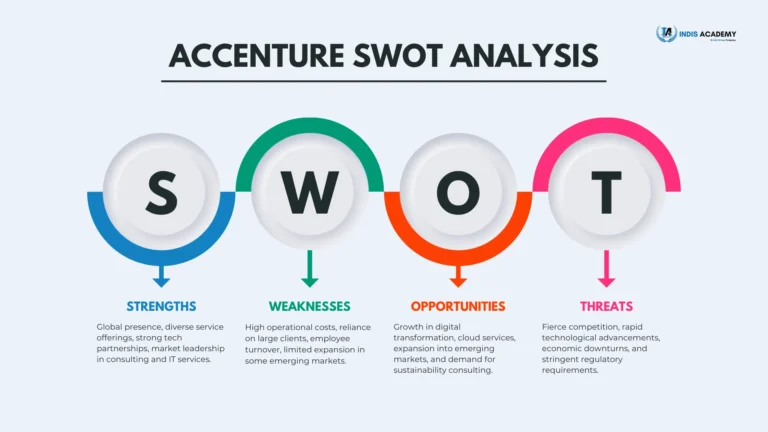When preparing for an SQL interview, it’s essential to be well-versed in various SQL query topics. Understanding the most commonly asked questions can significantly boost your chances of success.
This article not only covers top SQL query interview questions but also provides detailed answers to help candidates excel in their interviews. While AWS Interview Questions are frequently discussed in the tech industry, SQL remains a fundamental skill for data management and manipulation across multiple platforms, including AWS.
SQL, or Structured Query Language, is the backbone of relational database management and is widely used by professionals to query, insert, update, and delete data within databases.
Mastery of SQL queries is crucial for roles in data analysis, database administration, and backend development.
The questions included in this guide range from basic to advanced levels, covering various aspects such as joins, subqueries, indexes, and optimization techniques.
Whether you are a novice or an experienced professional, this comprehensive list of SQL query interview questions will provide you with the knowledge and confidence needed to tackle challenging interview scenarios.
By understanding these concepts and practicing the provided answers, you can demonstrate your SQL proficiency and stand out to potential employers.
Top 20 SQL Query Interview Questions & Answer
Top 20 SQL Query Interview Questions with answers that will help you to qualify your interview:
What is SQL?
SQL (Structured Query Language) is a standard language used to communicate with and manipulate databases. It is used for querying, updating, and managing data in relational databases.
What are the different types of SQL commands?
- DDL (Data Definition Language): CREATE, ALTER, DROP
- DML (Data Manipulation Language): SELECT, INSERT, UPDATE, DELETE
- DCL (Data Control Language): GRANT, REVOKE
- TCL (Transaction Control Language): COMMIT, ROLLBACK, SAVEPOINT
What is a primary key?
A primary key is a unique identifier for a record in a table. It ensures that each record is unique and cannot contain NULL values.
What is a foreign key?
- A foreign key is a field (or fields) in one table that uniquely identifies a row in another table. It establishes a relationship between the two tables.
What is a JOIN? Explain its types.
A JOIN is used to combine rows from two or more tables based on a related column. Types include:
- INNER JOIN: Returns records that have matching values in both tables.
- LEFT JOIN (or LEFT OUTER JOIN): Returns all records from the left table and matched records from the right table.
- RIGHT JOIN (or RIGHT OUTER JOIN): Returns all records from the right table and matched records from the left table.
- FULL JOIN (or FULL OUTER JOIN): Returns all records when there is a match in either left or right table.
What is the difference between INNER JOIN and OUTER JOIN?
- INNER JOIN: Returns only the rows with matching values in both tables.
- OUTER JOIN: Returns all rows from one table and the matched rows from the other table. If no match is found, NULL values are returned for columns from the table that lacks the match.
What is a subquery?
A subquery is a query within another query. It is used to perform operations that need to be executed in steps, and it can return individual values or entire result sets.
What is an index and why is it used?
An index is a database object that improves the speed of data retrieval operations on a table at the cost of additional storage space and maintenance overhead. It is used to quickly locate and access the data in a database.
Explain the difference between clustered and non-clustered indexes.
- Clustered Index: Determines the physical order of data in a table. Only one clustered index can be created per table.
- Non-clustered Index: Does not alter the physical order of the data. There can be multiple non-clustered indexes on a table.
What is normalization? Explain its types.
Normalization is the process of organizing data to reduce redundancy and improve data integrity. Types include:
- 1NF (First Normal Form): Removes duplicate columns and ensures each column contains atomic values.
- 2NF (Second Normal Form): Ensures that all non-key attributes are fully functional dependent on the primary key.
- 3NF (Third Normal Form): Removes transitive dependencies, ensuring non-key attributes are not dependent on other non-key attributes.
What is denormalization?
Denormalization is the process of combining normalized tables to improve database performance by reducing the number of joins needed for data retrieval.
What are the different types of normalization forms?
- 1NF: Each column contains atomic, indivisible values.
- 2NF: Every non-key column is fully dependent on the primary key.
- 3NF: Non-key columns are not dependent on other non-key columns.
- BCNF (Boyce-Codd Normal Form): A stronger version of 3NF where every determinant is a candidate key.
What is a view in SQL? How do you create and manage it?
A view is a virtual table that is based on the result set of a SELECT query. It is created with the CREATE VIEW statement and can be managed using ALTER VIEW and DROP VIEW.
What is a stored procedure?
A stored procedure is a set of SQL statements that can be stored and executed on the database server. It helps in reusing code, improving performance, and encapsulating logic.
What is a trigger in SQL?
A trigger is a set of SQL statements that automatically execute in response to certain events on a particular table or view, such as INSERT, UPDATE, or DELETE.
How do you optimize a query in SQL?
- Use proper indexing.
- Avoid unnecessary columns in the SELECT clause.
- Use WHERE clauses to filter data early.
- Avoid using functions on indexed columns in WHERE clauses.
- Use JOINs instead of subqueries when appropriate.
What is the difference between DELETE and TRUNCATE commands?
- DELETE: Removes rows one at a time and logs each deletion. Can include a WHERE clause.
- TRUNCATE: Removes all rows from a table without logging individual row deletions. Faster but cannot include a WHERE clause.
What is a transaction? Explain the properties of a transaction (ACID properties).
A transaction is a sequence of one or more SQL operations treated as a single logical unit. ACID properties ensure data integrity:
- Atomicity: Ensures that all operations within a transaction are completed successfully. If any operation fails, the transaction is aborted.
- Consistency: Ensures the database transitions from one valid state to another.
- Isolation: Ensures transactions are executed independently without interference.
- Durability: Ensures that once a transaction is committed, it remains so, even in the event of a system failure.
How do you handle errors in SQL?
Use error-handling mechanisms like TRY…CATCH blocks in SQL Server or equivalent constructs in other SQL dialects to capture and manage errors gracefully.
What are aggregate functions? Provide examples.
Aggregate functions perform calculations on a set of values and return a single value. Examples include:
- COUNT(): Counts the number of rows.
- SUM(): Calculates the sum of a set of values.
- AVG(): Calculates the average value.
- MIN(): Returns the minimum value.
- MAX(): Returns the maximum value.
Conclusion: SQL Query Interview Questions & Answers
In conclusion, mastering SQL query concepts is essential for any aspiring database professional or data analyst.
Understanding the foundational elements, such as the types of SQL commands, the use of primary and foreign keys, and the various forms of joins, is crucial for efficiently managing and manipulating databases.
Knowledge of advanced topics like subqueries, indexes, normalization, and transaction management further enhances one’s ability to optimize database performance and maintain data integrity.
This guide has covered the most frequently asked SQL interview questions, providing detailed answers that encompass both basic and advanced topics.
By thoroughly studying these questions and practicing the provided answers, candidates can gain a significant advantage in their interviews.
Whether you are preparing for a role in database administration, backend development, or data analysis, a strong grasp of SQL queries will not only help you ace your interviews but also empower you to handle complex data operations in real-world scenarios.
Investing time in learning and practicing SQL will pay off, as these skills are highly valued in the tech industry. With the right preparation, you can confidently demonstrate your SQL proficiency, making you a standout candidate in the competitive job market.











